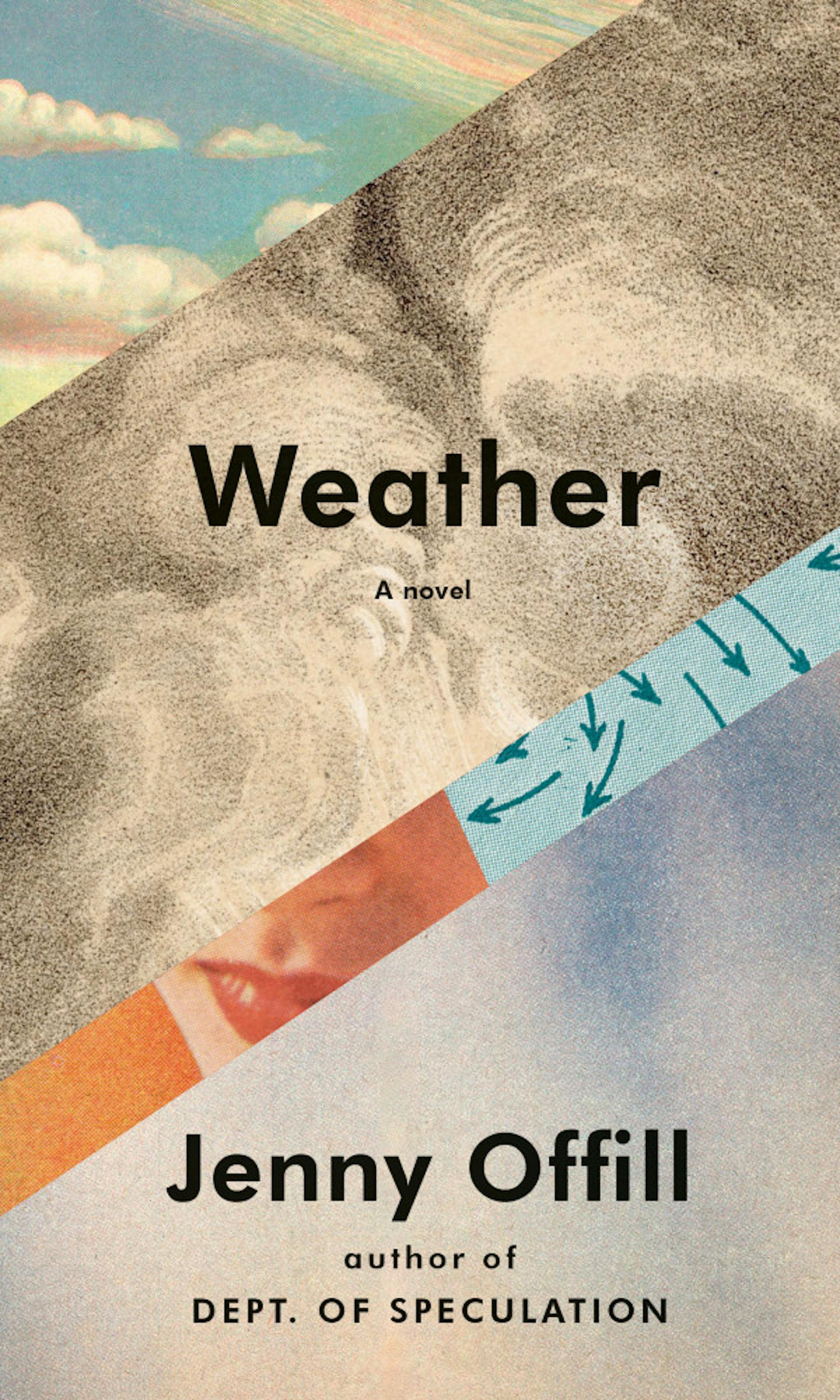In most popular apocalypse stories, the plot largely takes place either during or after a worldwide catastrophe. After a disaster or plague, we watch protagonists struggling to survive in a society post-collapse, which only vaguely resembles our current world.
In an inversion of this narrative, “Weather” (2020) by Jenny Offill instead focuses its attention on the lead-up to such a world. “Weather” tells the story of Lizzie, an academic librarian at the university she dropped out of as a graduate student. Through this character, Offill explores what it means to come to terms with the full scope of impending doom. In states of tightening anxiety over the course of the novel, Lizzie moves from apathy around climate change to a slow, but full, panic about the state of the world and its impending destruction.
Offill herself is a fascinating author to portray this transformation. She made her name in 2014 with her novel “Dept. of Speculation,” a philosophical work exploring marriage and infidelity. At the center of Offill’s repertoire is the fragment: both “Dept. of Speculation” and “Weather” feature pieces of writing rarely extending past three to four sentences. The final result is a pointillism-style work that evokes similar feelings as Renata Adler’s “Speedboat”(1976)or Ocean Vuong’s “On Earth We’re Briefly Gorgeous” (2019). A picture is painted with only a few choice strokes, but the author has thought deeply about which marks will resonate deepest.
In “Weather,” Lizzie’s gradual education of the climate crisis comes about through emails. Lizzie is still in touch with her mentor Sylvia — who pulled strings for her to get her position as a librarian and runs a climate-focused podcast called "Hell or High Water." Sylvia offers Lizzie a side-gig answering emails for the podcast, and Lizzie accepts, fielding questions from listeners that range from “Why do humans like applause?” to “How did we end up here?” By nature of the podcast’s content, Lizzie often fields emails from listeners that are either depressed or struggling,yet she doesn’t mind this much. She already plays the role of an amateur shrink to those in her family: her brother recovering from addiction, her divorced mother, her husband and son. She is well-accustomed to ways of parsing the world such that it’s digestible to others.
Offill excels in how she portrays the response of the privileged to a distant but forthcoming apocalypse: a mixture of selfishness, overreaction and obliviousness. With Sylvia, Lizzie attends an event where the rich discuss the best places to purchase property now so that their children will survive; she and her husband later discuss how their ideal “doomstead” would be on a hill, for floods and for defense. At times this is frustrating to read; while the characters speculate about the future, they ignore anything outside of the United States, including climate refugees of the present. Yet this feels intentional on Offill’s part, and Lizzie seems aware of her status as someone in between two extremes — neither a climate refugee nor someone wealthy enough to purchase a doomstead. There’s a satirical bent in Lizzie’s narration of her world that suggests this awareness as she watches those around her react to bad news of different kinds, such as the 2016 election.
Still, even with this awareness, Lizzie’s thoughts start to break down as she surrounds herself with more and more bad news: from listening to her mentor’s podcast, to the emails that pile in, to the visions her brother has about accidentally killinghis newborn baby. She becomes a "prepper," detailing ways in her emails and to those around her on how one might survive an upcoming climate disaster. Offill suggests that as people become disheartened by the scale and impact of a problem, they turn toward individualism by focusing on the small actions that could save themselves and their family. Lizzie becomes overwhelmed with survival techniques, and the text follows suit; more and more fragments in the novel are about these techniques, instead of Lizzie’s own plot.
But she doesn’t have the luxury of fully collapsing underneath these worries: Offill shows Lizzie ultimately caught between anxiety about the future and her current day-to-day world. In a pivotal moment, a character asks Lizzie: “What’s keeping you here?” and it seems to signify Lizzie’s larger issue with speculation — whether she’ll follow her paranoia. But Lizzie starts to understand how her worrying takes away from the current reality of her family and life. Her reply isn’t a revelation so much as a hint of a worldview that she’s only beginning to understand: “All these people,” she thinks. “I have so many people, you wouldn’t believe it.”
Offill wades through climate anxiety in 'Weather'

The cover of "Weather" (2020) by Jenny Offill is pictured.





